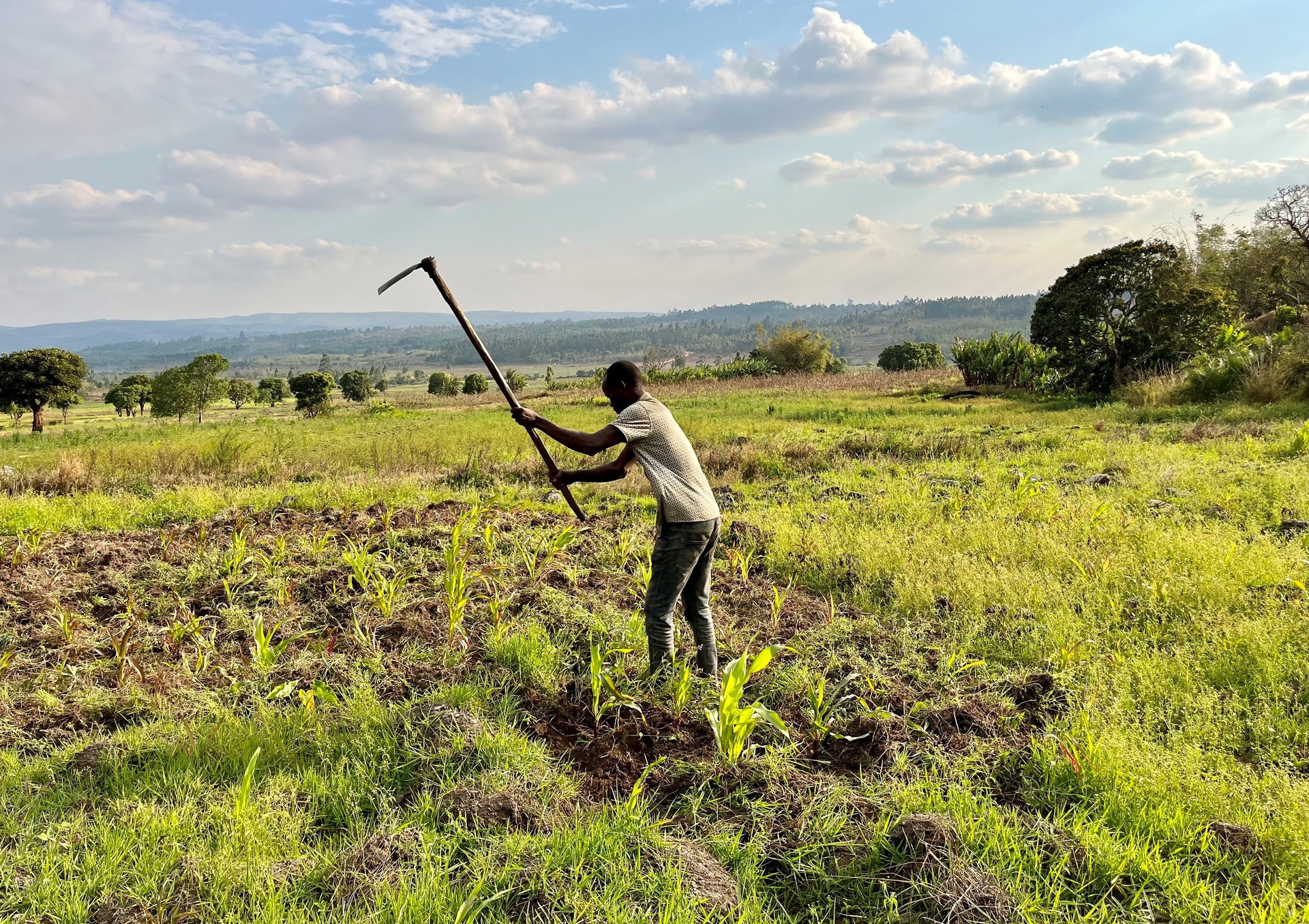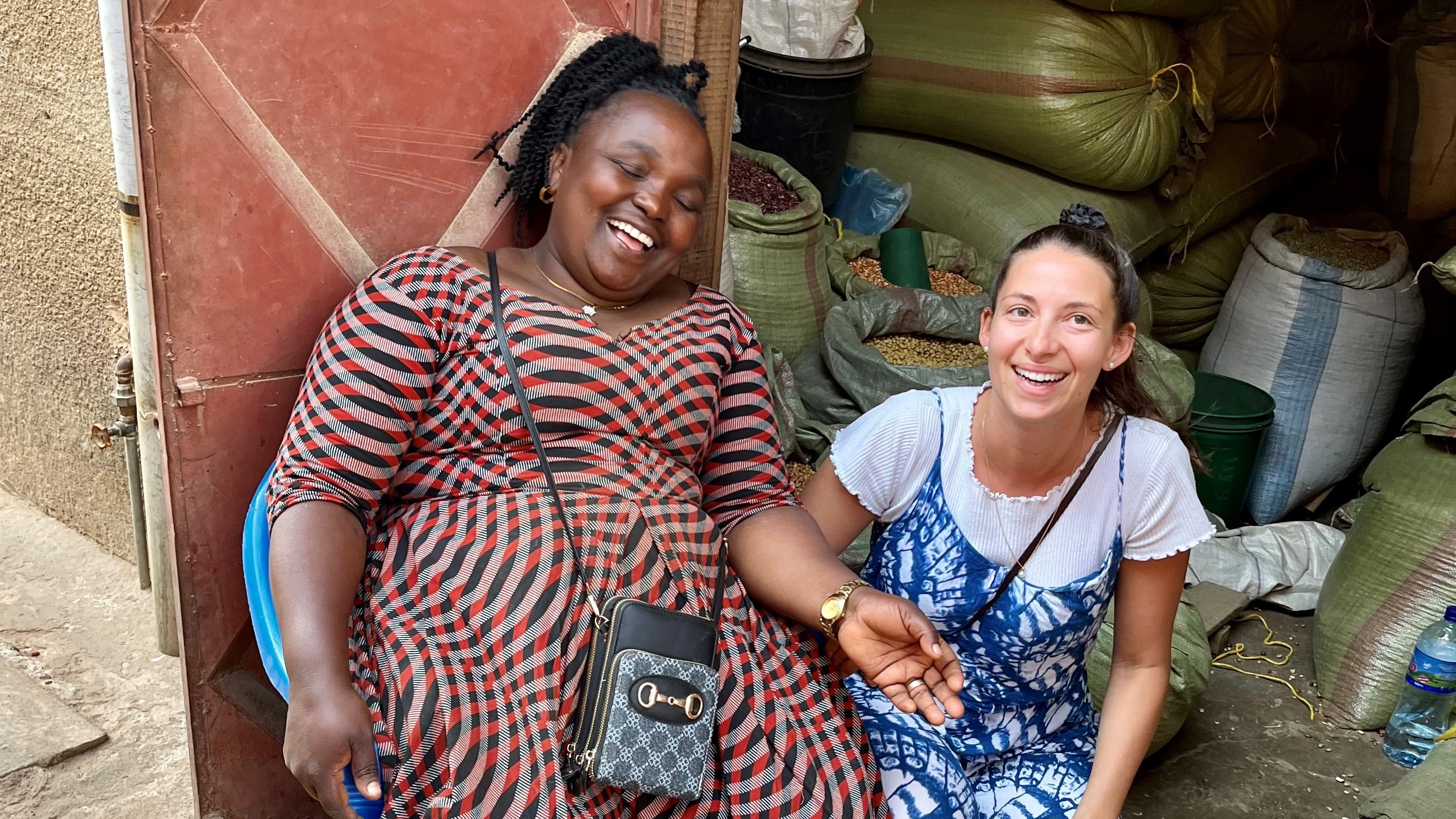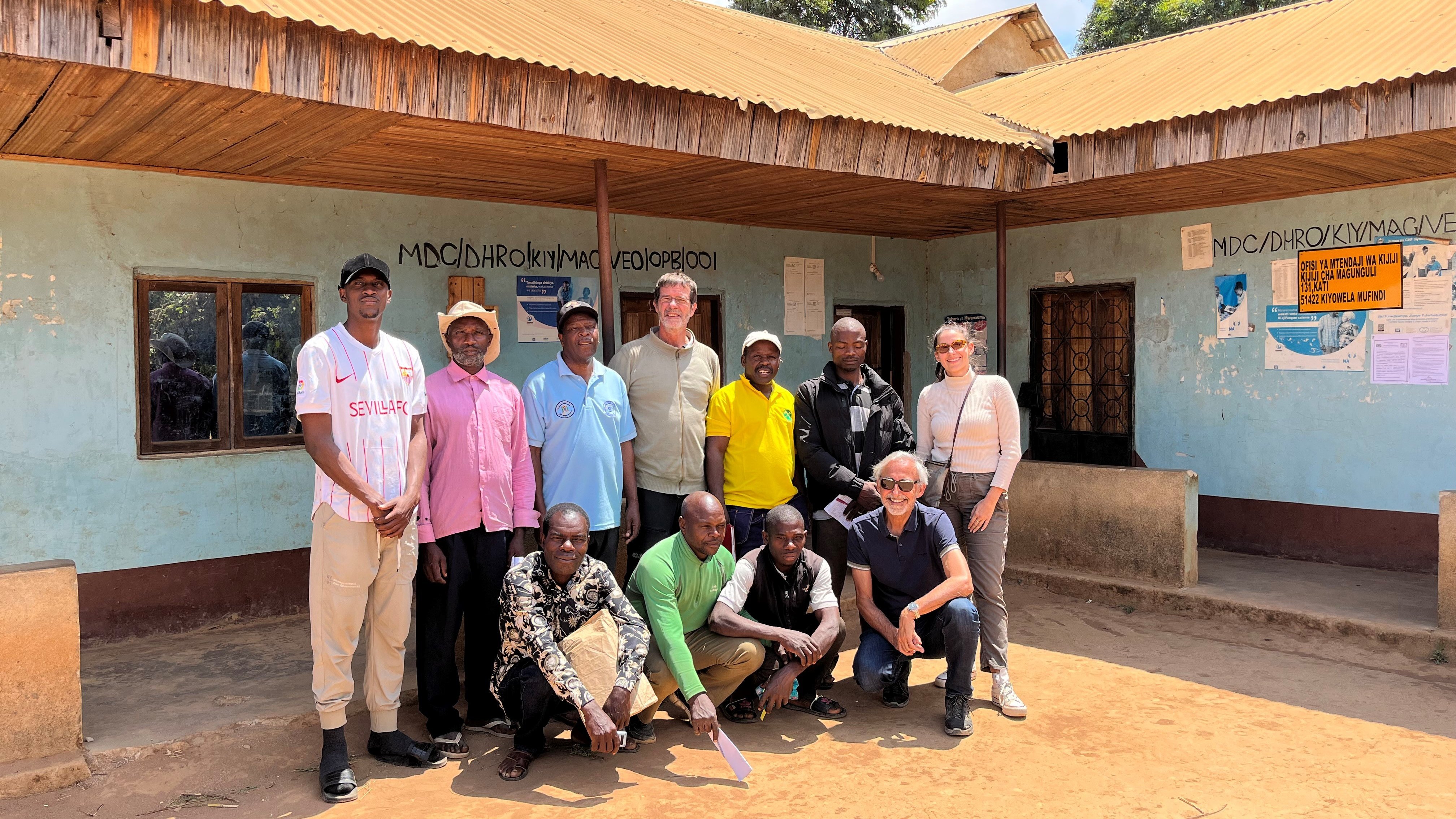

Who are we?
We are a joint research initiative of the Competence Center for African Research of the University of St. Gallen and the Institute of Development Studies of the University of Dar es Salaam in cooperation with the Swiss foundation farip. We promote collaboration between Swiss and Tanzanian students on agricultural and forestry innovation in remote Tanzania. We promote cultural exchange and knowledge sharing through action research to tackle social and climate-related challenges. We support students in selecting research topics for their theses and help coordinate their research trips. We invite you to invest your Bachelor, Master, PHD thesis or any other research efforts in the vibrant landscapes of Tanzania.
Potential in rural Tanzania
Problems to tackle
What’s in for you?
Experience Report
"My Master's thesis took me to Tanzania, where I worked with local entrepreneurs, the farip foundation and the venture GRACOMA (Growing Asset Collateral Management) to develop a credit model for smallholder farmers that uses standing trees as collateral. On this action research trip, 1 learned about the relationship between business and politics, the critical role of trust, and the challenges of lack of financial resources in remote areas in Tanzania. Most of all, 1 appreciated the opportunity to innovate in a diverse research team with fascinating interlocutors. lmmersing myself in the economic dynamics of Tanzania and exploring innovative methodologies was intellectually stimulating and fulfilling. lt was a transformative adventure full of challenges, growth and rich intercultural learning experiences."
Rahel Guggenbühl MBI Alumni

What does farip do? farip focuses on innovation in rural areas in Tanzania and promotes unconventional ideas and experiments. Their focus is on trade mechanisms that lead to fair prices and stable income improvements for producers. They provide coaching and funding for innovations and prototypes in smallholder agriculture, processing, logistics and marketing. Their approach to partners is commercial: farip offers graduated loans based on business plans for small farms. In this capacity, farip acts as a venture capitalist, providing loans for critical stages of development until the businesses become attractive to investors. Since 2016, farip has been working together with their strategic partner TBM, the trading company "Tanzania Biashara Mapema". They are involved in their commercial ventures. All ventures are prototypes that are organized around the core process "TSS". In many cases, the failure of a venture gave rise to new ideas and solutions, which were explored through scouting. Thisgave rise to new ventures that are interrelated.
We are looking for enthusiastic students who would like to contribute to the dynamic growth of one of the farip ventures in Tanzania. This involves action research to improve the economic viability of the ventures or to address technical challenges in the forestry and agricultural sectors.
GROWING ASSET COLLATERAL MANAGEMENT (GRACOMA).
Tanzanian smallholder families could significantly increase their production if they had money for labour, seeds and fertilizer at the right time. But money is always scarce in the village. The interest rates are too high and the risk of losing land and houses as collateral is too great. Bahat Tweve a local entrepreneur has found a solution with "GRACOMA". After careful consideration of how the trees' assets could be used as collateral for loans and which roles are required for the functioning of the credit model, farip carried out a pilot project: 10 families registered their trees and received a loan from farip to cultivate a third of a hectare with beans and potatoes. farip acted as a "bank" and granted loans for potatoes worth CHF 715 each and beans worth CHF 305 each, which were secured by the tree registration and monitored by the local forest steward working for GRACOMA. It worked: the loans were repaid with interest after a successful harvest, and the families earned good money through TBM, the trading company that works with the fair TSS trading mechanism. With the successful field trial, GRACOMA has reached an important milestone at village level. In the next agricultural cycle, that has started in December 23, the plan is to grant new loans to the original 10 families, but with double the amount. The aim is to get more data on default processes and potential re-insurance models to get the necessary
track record for FIs to invest.
TCRD. The Tree-secured Credits for Rural Development (TCRD) is a research program launched by this initiative, in which we want to form project teams with students from Switzerland and Tanzania to work together on various research questions. One focus is on determining the value of growing trees, which goes beyond the conventional calculation of standing timber. This comprehensive assessment also includes non-timber products, biodiversity, climate impact and watershed management. It opens up opportunities to formulate research questions on strategies to increase value through local processing in timber and non-timber sectors and to investigate biodiversity credits. Another area of research is the careful monitoring of growing trees and the systematic dissemination of relevant information to creditors. This also includes the regular and reliable evaluation of credit applications from farmers within the village and the assessment of the associated risks. The study of the credit process also includes analyzing the judicious use of credit by farmers and effective default management, which provides further opportunities for in-depth investigation.
TECASECO. Villagers make charcoal-dust from waste biomass (NOT from cut trees!) in simple pits. They mix the chardust with cattle manure for upgrading the soil in irrigated gardens for increasing their income. The mixing of chardust with manure is monitored and certified as sequestered carbon, for which villagers get additional income. The income from carbon sequestration pays for the irrigation systems.
Transaction Security Services (TSS). The TSS system run by the company Tanzania Biashara Mapema (TBM) takes care of marketing farm products on behalf of farmers, and then transparently reconciles all the financials with the farmers. Famers then share 10% of their profits with TBM. An information-system operated entirely through mobile phones in the field allows to immediately enter data on each deal, monitor the progress, make fast reconciliations and payments. The data-base allows to identify problem spots and analyze the business of TBM.
Are you interested or would you like to know more about farip ventures and your opportunity for action research in Tanzania? - Write to Rahel Guggenbühl
